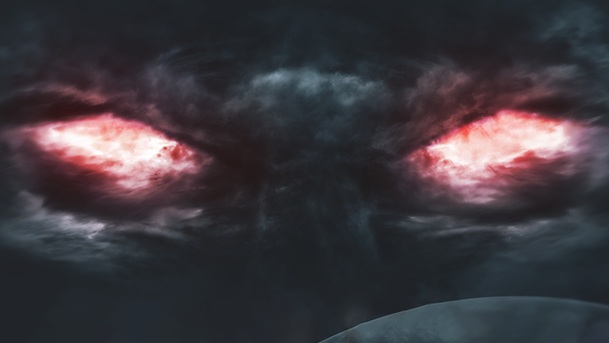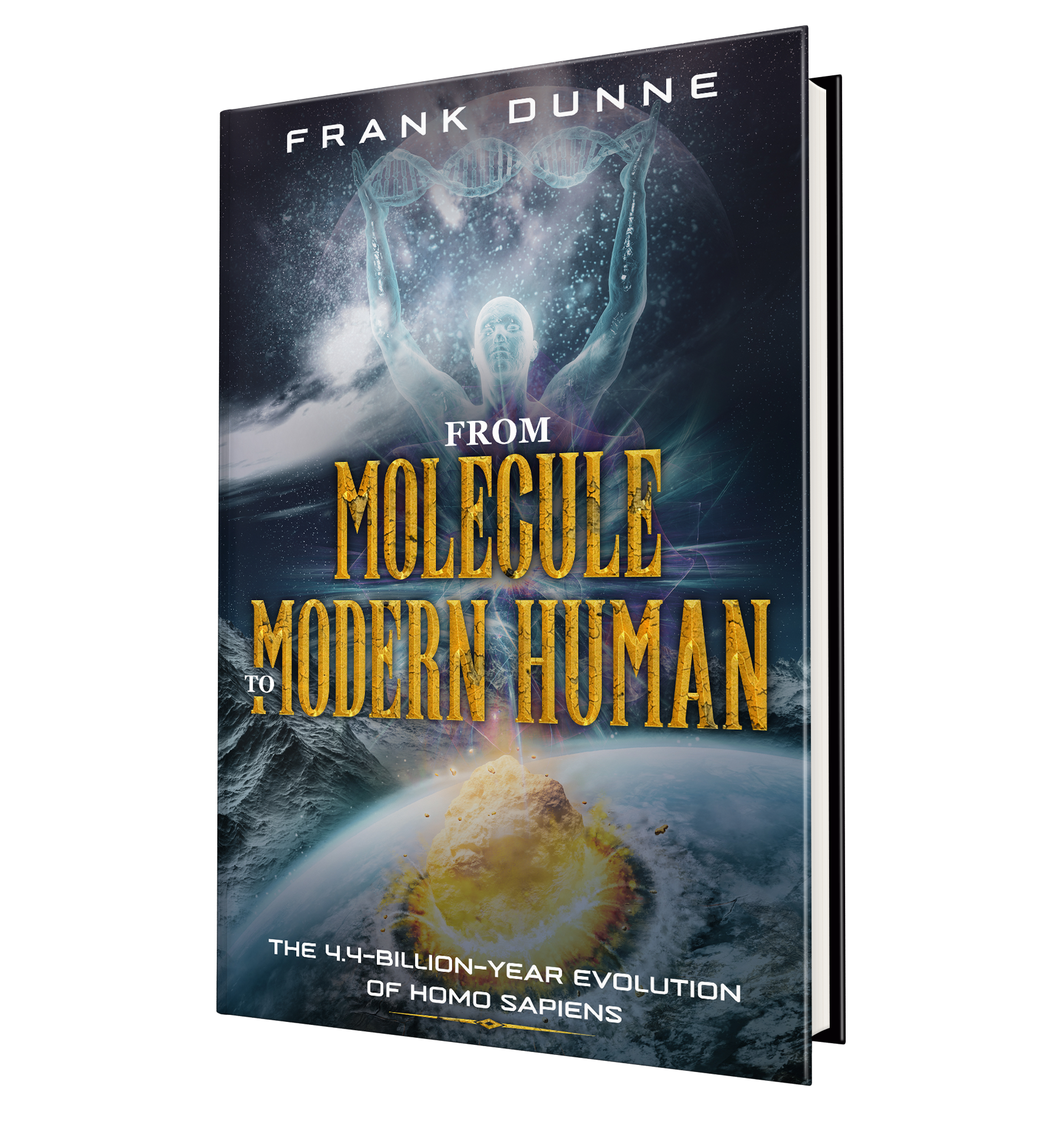It was my great privilege to work with author Frank Dunne on an interview over the last couple of weeks. We spent some time learning more about what makes Frank tick, and explored the projects he’s published, as well as the ones he’s working on. Whether you like fiction or non-fiction, Frank has something for you. Read on to learn more about Frank Dunne.
Tellest: Hello there, Frank! I appreciate you taking the time to speak with me. As a very versatile storyteller and academic, I’m sure there’s always a lot of things that you’re working on, whether it’s exercising a creative outlet, or performing research for your next non-fiction. People will no doubt want to learn more about you, so if you’re ready, let’s figure out what makes you tick.
Frank Dunne: Thank you, Mike. Maybe we can both figure out what makes me tick.
T: You’ve previously promoted two of your books with Tellest. One of them was a fantasy and sci-fi collection called Open Your Eyes, while the more recent one was a non-fiction that explored the depths of human evolution, From Molecule to Modern Human. Which do you think you’re drawn to more: excellent fiction or impressive academia?
FD: I’ll give the edge to science fact, but I do my best to write science that is as engaging and enjoyable as a good fantasy/scifi adventure.
T: You can tell that when you’re going through the material, you’re engrossed and entertained, and there’s no doubt that it passes on to the reader as well. When you’re researching for your non-fiction, do you have a general concept of what you’re going to be talking about, or do you end up disappearing down the rabbit hole for days on end?
FD: My science topics are usually motivated by the popular media. I need order in my life and my thinking, as well as order on science issues. I have a reasonably strong multi-discipline knowledge and I have temporarily filled in as a science editor once, so I have been exposed to many fields. When experts in the same science field disagree, then I want to know the points of contention and explore them for myself. For example, in the past it was taught that nothing can cross the event horizon of a black hole in a finite time. Now, however, professional television physicists talk about matter being swallowed by black holes. Which is it? The most controversial topic of all is global warming or the all-inclusive “climate change”. Is there an answer? All science disciplines have the same dilemma—professional disagreement. Unfortunately, scientific theories are adhered to along political ideologies. I try to take the politics out of the analysis. For my research, I find as much information about a topic as I can. This is not easy because it appears, at least to me, that some opposing views are purposely buried. In any case, once I gather all the so-called facts, I look at where the opposing views intersect. From those points of agreement, I can usually follow a trail, forensically, to its origins and ultimately its truth.
T: Across the board, what are your inspirations for writing? I’m sure that you have different ones when it comes to the fiction versus the non-fiction—although, all that being said, I’m sure there are some people who would fit both criteria.
FD: Long before I wrote, I painted. Unfortunately, I kept only a few pieces. However, the love of planning the project is the same for both. Then, whether developing a painting or a story, the same thoughts go into each—foundation, direction, lots of focus, emotion. I want to be satisfied with the finished product, and I want the audience to enjoy the end product. For fiction, I try to generate the primal energy that Peter Paul Rubens and Frank Frazetta evoked in their paintings. When you read my short stories in the dark, you don’t need a light, because enough glow comes from the energy of the characters to see the words. For non-fiction, I try to tell the absolute truth, which is not always easy to find, and is confusing to many people who learned science from entertaining television programs. Humor comes naturally in non-fiction, so expect some laughs.
T: Have you ever been caught in a kind of creator’s loop, where you’ve worked on a painting that inspired a story, or vice versa?
FD: Yes. I painted an angel fighting Satan. That inspired me to write The Angels of Discontent. Then, I resketched the painting and the angel I drew gave me the idea to write a second and third part of the story. I loosely outlined each story already. After reading The Golem, by Gustav Meyrink, I wrote a poem and painted a scene from the book.
T: I feel as though you’ve got other books that are hidden in the background that we haven’t seen yet. They might not have fit the bill on Tellest, but as we’re trying to learn more about you here, maybe you could give us a glimpse of the other work you’ve done across your writing catalog.
FD: Until recently I didn’t write much prose. A few years ago, I was the poetry editor of a small journal. I am a rhythmic writer and poetry with rhyme schemes comes naturally to me. I wrote sonnets, terza rima, traditional, and many others. My busy life schedule forced me to stop all writing, but lately I’m making time to work the craft. I’m currently writing a larger non-fiction that is sure to please the hard-core science-lover as well as the scifi enthusiast.
T: Your last non-fiction was an intense and in depth look at human evolution, and really, life on Earth in general. Are we looking at another deep dive, or is your new work a broader take?
FD: My new work will be considerably longer, and it will still be about the Earth and terrestrial organisms. It will discuss life on Earth through the time periods and it will talk about the geology, climate, and conditions on a micro scale. As if I am putting the reader in the epoch. It will include our place among the stars and probably one or two extraterrestrial visitors. It should be educational and entertaining.
T: Do you still find time to paint, or has scrounging for time put that on hold?
FD: Unfortunately, painting is on indefinite hold. At this point in my life, I can only focus on one indulgence at a time.
T: Open Your Eyes is a bite-sized look at your writing prowess. Do you have any plans to exercise your storytelling muscles for a longer work?
FD: I’m experimenting with story length, so it’s possible. Edgar Allan Poe wrote short stories, with some bordering on flash fiction. He mentioned that the brevity of the stories allowed him to reach higher levels of emotion than through the writings of longer pieces. I like that idea and write concisely and vividly. I purposely chose the length that I write at because it allows me to develop the characters. My stories start fast, and we are in the thick of things quickly. I am a fan of the old horror writers of a hundred years ago. Robert Howard and Seabury Quinn top the list. Short, thought-provoking terror that you will rattle your bones long after reading. My stories vary in genre, some horror, some science fiction, scary, funny, but I hope they are all animated and memorable. I may expand to the novella length and I may serialize some of the stories. In any event, I plan to write much more.
T: It sounds like when you first started writing, the idea wasn’t to get rich, but for the passion and enjoyment of the craft. Have you found any challenges in adjusting for things like Amazon and the kind of marketing and promotion that goes hand in hand with that?
FD: Writing and the other crafts and arts need to be motivated by the passion and enjoyment of the creator. So much work goes into a project yet usually only the writer or designer finds meaning and satisfaction in the final product. There comes a point, however, when the author or artist develops such a strong belief in their work that they want to share it with the world. That’s where promotion comes to play and learning about promotion is another plunge into research. I greatly appreciate your help as you know your craft very well.
T: Thank you very much for that. With that in mind, I wanted to thank you for chatting with me, and we’ll leave readers with one last question for you: Where can people find out more about your work?
FD: I wrote pieces for small, society journals, here and there, but nothing significant. I’m just getting the publishing ball rolling so it will be some time before more pieces are seen. Thanks for asking.
I want to thank Frank once again for taking the time to work with me on this interview. He’s very busy in research so it was an honor to be able to take up some of his limited time. We’ll be keeping up with Frank’s upcoming work and we’ll be sure to mention it on our social media. In the meantime, be sure to pick up some of his existing work. Open Your Eyes: 5 Stories of Original Fantasy & Science Fiction and From Molecule to Modern Human: The 4.4-Billion-Year Evolution of Homo Sapiens are both wonderful reads!
Michael DeAngelo
Latest posts by Michael DeAngelo (see all)
- Fantasy Promo – Quinine - July 25, 2024
- Sigil Art – Grim’s Hold - July 24, 2024
- Fantasy Promo – Light the Shadows (Under Elfhame’s Stars) - July 24, 2024


